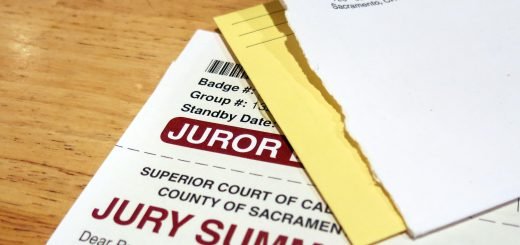Stalled Dialogue: Security Certificates at an Impasse
The ongoing judicial-parliamentary dialogue over the constitutionality of Canada’s security certificates regime came to a halt this week when the Federal Court refused to consider the latest constitutional challenge on its merits. Almrei v Canada (Citizenship and Immigration), 2007 FC 1025 [Almrei] is the first constitutional challenge to the new amendments to the Immigration and Refugee Protection Act, SC 2001 c 27 [IRPA], enacted in the wake of the Supreme Court of Canada’s (“SCC”) 2007 decision in Charkaoui v Canada (Citizenship and Immigration), [2007] 1 SCR 350 [Charkaoui]. Parliament amended the IRPA this year in an effort to get the anti-terrorism legislation up to Charter standards, but on Tuesday Chief Justice Allan Lutfy balked the latest challenge, stating that there has not been enough time for a body of evidence surrounding the new provision to develop. Effectively taking a “wait-and-see” approach, the Federal Court’s decision sounds a lot like the mechanic telling you to just ignore that strange sound coming from your new car: maybe with time it will just go away.
The Background
The security certificate regime found in the IRPA and its related court battles should be a familiar topic to readers of TheCourt.ca, being the subject of headline-making legislative amendments, and groundbreaking rulings. In brief, however, the regime allows for the detention and removal of anyone posing a threat to national security. Because evidence relating to these proceedings can be confidential and highly sensitive to security matters, the regime allows for a variety of unusual secrecy mechanisms: the evidence may be heard in secret, in the absence of the detainee; and evidence may be withheld from disclosure to the detainee or his solicitor.
In 2007, the SCC held that these secrecy mechanisms violated the s.7 Charter right to a fair judicial process. The key failing of the regime was that it allowed for the detention and deportation of an individual “without providing for an independent agent at the stage of judicial review to better protect the named person’s interests.” The SCC recognized that the pressing need to preserve some level of secrecy over information concerning national security means that in some circumstances “administrative constraints” might make it impossible for the government to adhere to procedural protections in their usual form. That is to say, there are times when national security prevents the government from disclosing information in the traditional manner. In such circumstances, however, the government must provide some other “meaningful and substantial” substitute for normal procedural protection. National security does not give the government a carte blanche to violate procedural rights – s.7 demands some creative adherence to fundamental justice.
The 2007 Amendments
It was against this backdrop that in late-2007 parliament amended the IRPA. The new amendments provide for ‘special advocates’ who may appear at the secret hearings and gain access to secret evidence in the absence of the detainee. These security-cleared lawyers would act to ensure that the interests and rights of the detainee are protected in the hearings, and may challenge the government’s case. Importantly, however, their ability to communicate with the detainees, other lawyers and the public is significantly curtailed. S.85.4 of the new Act states that once a special advocate receives secret evidence, he or she cannot communicate with any other person about the proceedings except with authorization of the presiding judge. This meant that special advocates could not speak with their clients, other lawyers, members of the public, the media or any one else about anything concerning to the proceedings, whether it was about the confidential information or not.
The Case
In short, the applicants in the Almrei case argued that the restrictions on special advocates simply go too far. Read liberally, they would restrict special advocates from communicating with their spouses concerning travel to or from hearings, it would restrict communication with administrative and support staff, and communication with other special advocates on the same case. In attempting to strike a balance between protecting national security and protecting the procedural rights of the detainees, parliament simply tipped the scales too far to the side of national security.
At the end of the day, however, Chief Justice Allan Lutfy balked at the challenge stating that notwithstanding the applicant’s understandable anxiety and frustration, without time for an evidentiary base to develop, the claim is at best speculative. It would be preferable to wait and see how the regime operates in practice rather that rule on its constitutionality simply on the basis of hypotheticals. The applicants admittedly characterized their challenge as a “facial challenge” based almost entirely on legislative facts rather than adjudicative facts, but perhaps with good reason. It is hard to see what evidence might develop given that the special advocates find themselves unable to communicate.
In any event, the constitutional dialogue over security certificates has come to a temporary impasse. If the history of this issue is any indication, however, this writer is willing to bet that the last word has yet to be spoken.






Join the conversation